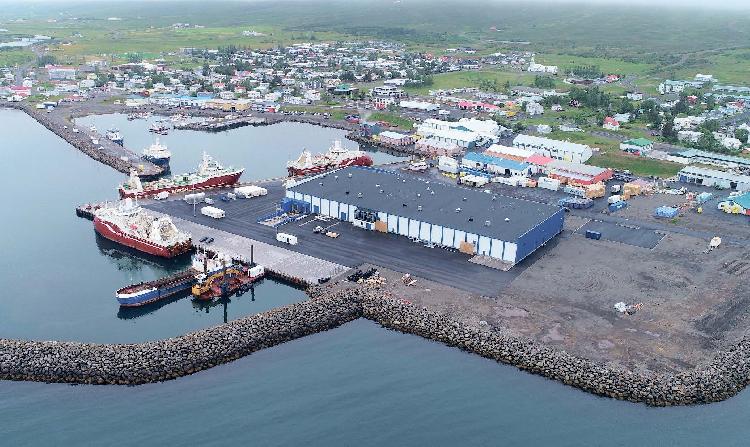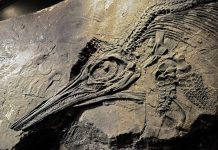Africa-Press – Namibia. SONJA SMITH and TIMO SHIHEPO
THE Namibian government wants bribery-accused Icelandic company Samherji Holding to pay it N$318 million in taxes, which its local subsidiaries owed tax authorities before the Fishrot corruption scandal broke in 2019.
Samherji’s newly published annual accounts, dated 30 December 2021 and obtained by The Namibian, show that the government wants Samherji to pay taxes and other legal claims owed by its subsidiaries, such as Saga Seafood, Esja Investments, and Heinaste Investments.
The fishing company, which is accused of being the main vehicle that drove the Fishrot saga forward, left the country in 2019 under a cloud after it was accused of paying Namibian executives and politicians bribes in exchange for fishing quotas.
Samherji Holding started its operations in Namibia in 2011.
“Namibian authorities have instituted several tax and legal claims against Namibian subsidiaries of Samherji Holding. Among those are back taxes of N$318 million,” a paragraph contained in the annual accounts of Samherji Holding states.
The vessel that was once confiscated by the Namibian authorities, the Heinaste, according to the annual accounts, now forms part of the company’s discontinued assets.
The vessel was sold to a third party in November 2020 for N$275 million.
One third of the sale price has still not been paid, but will allegedly be paid between 2022 and 2023.
“What has been paid, in accordance with an agreement with the Namibian government, is kept in a joint account with the Namibian treasury until court cases in Namibia are settled. It is therefore unclear when the value of the sale will be available for use by the group,” reads a part of the company’s annual accounts.
The account states that an investigation into the alleged crimes of Samherji Holding and the group’s employees related to their operations in Namibia, among others, is ongoing.
A documentary about Samherji’s activities in the Faroe Islands, which was shown on Faroese television last year, offers an explanation of how Samherji dodged its tax responsibilities in Namibia.
It revealed that an Icelandic citizen who worked on a Samherji vessel operating in Namibian waters was receiving a salary from the Faroe Islands.
This means the person’s salary was not taxed by the Namibian government.
The documentary further indicates that this applied to more sailors who worked for Samherji in Namibia.
As a result, the fishermen did not pay tax in Namibia, and Samherji did not have to make up for the loss of income due to such tax payments.
The Namibian authorities now want to claim some of this tax money.
Samherji spokesperson Karl Pálsson says the company’s management has not accepted these demands, and that the outcome thereof depends on legal action.
“The company’s management has objected to these assessments,” Pálsson told The Namibian last week.
The reason given is that it has not been possible yet to verify sufficient data from Namibian operations, which have now been discontinued and classified as such in the consolidated financial statements.
“In addition, there is still uncertainty about litigation due to financial settlements related to the operations in Namibia,” the annual accounts report says.
Prosecutor general Martha Imalwa announced in February last year that three of Samherji’s executives, Ingvar Júlíusson, Egill Árnason, and Adalsteinn Helgason would face criminal charges for their involvement in the Fishrot corruption scandal between 2014 and 2019.
In affidavits filed in the High Court last year, Imalwa said the foreign executives will join court proceedings once their whereabouts have been established.
She also said there may be extradition proceedings, and there is a real intent to prosecute the executives.
“It is common cause that an extradition process cannot commence without a formal charge,” she said.
Imalwa said arrest warrants for the executives have not been authorised yet, because they are not in Namibia.
She said steps are being taken to determine the executives’ whereabouts to ensure they are made available to Namibia.
The Namibia Revenue Agency (Namra) spokesperson Steven Ndorokaze last week declined to speak on the matter, citing confidentiality.
“Based on the above, supported by other revenue laws with similar provisions, we are unable to respond to any of your questions,” Ndorokaze said.
CHARGES
The Anti-Corruption Commission (ACC) wants Árnason to be prosecuted for his involvement in Esja Holdings and Mermaria Seafood Namibia.
Both Júlíusson and Helgason are wanted for the alleged crimes they committed when they were financial directors of Samherji’s companies, such as Saga Seafood, Esja Investment, and Heinaste Investments.
In the Namgomar case, Samherji is accused of bribing several people with N$103,6 million to secure access to horse mackerel quotas in Namibia.
Those who were allegedly bribed and charged in this case include former minister of fisheries and marine resources Bernhard Esau, former minister of justice Sacky Shanghala, and former Fishcor board chairperson James Hatuikulipi, among others.
In the Namgomar matter, the legal entities charged include Namgomar Pesca Namibia, represented by Ricardo Gustavo, Esja Holdings and Mermaria Seafood Namibia, represented by Saga Seafood, Esja Investment, and Heinaste Investments.
They will be arraigned on two counts of racketeering in contravention of the Prevention of Organised Crime Act, two counts of money laundering, three counts of contravening the Anti-Corruption Act, three counts of fraud with alternatives of theft and tax evasion, and one count of conspiracy to commit fraud.
Gustavo was allegedly the sole director of Namgomar Namibia, which was used to divert the quotas to Samherji.
Court documents indicate that Esau and Shanghala forged a bilateral cooperation agreement with Angola’s former fisheries minister Victoria de Barros, her son João de Barros, and a certain Antonius Fransisco for the allocation of quotas to each other.
From the agreement, Namgomar Pesca in Angola and Namgomar Namibia were then created and benefited from fishing quotas.
According to the charges, these quotas were then fraudulently diverted and sold to Samherji.
For More News And Analysis About Namibia Follow Africa-Press






